 |
"Once We Were Slaves to Pharaoh”: Slaves, Enslavement, and Forced Labor in the Ancient Mediterranean
March 19th, 2025
|
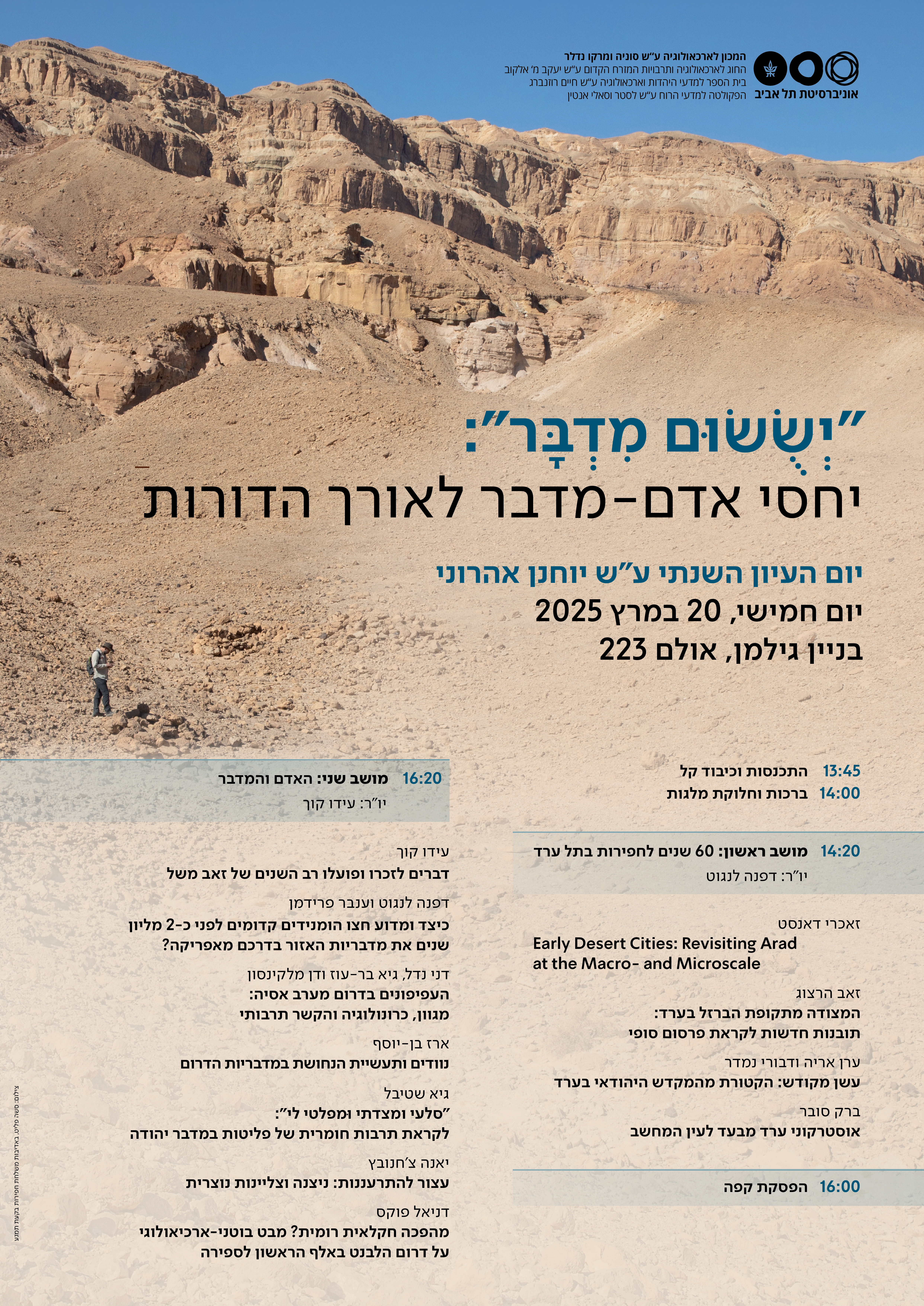 |
Human-Desert from Prehistory to Modernity
March 20th, 2025
Program >
Photo gallery >
|
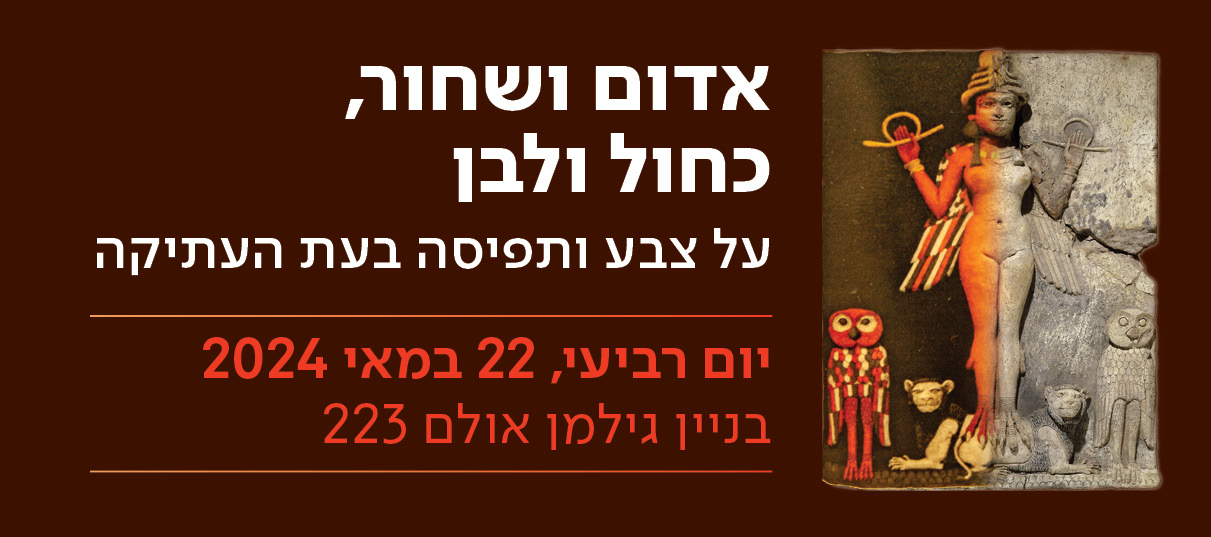 |
Red and Black, Blue and White: Color Perception in Antiquity
May 22nd, 2024
Program >
Photo gallery >
|
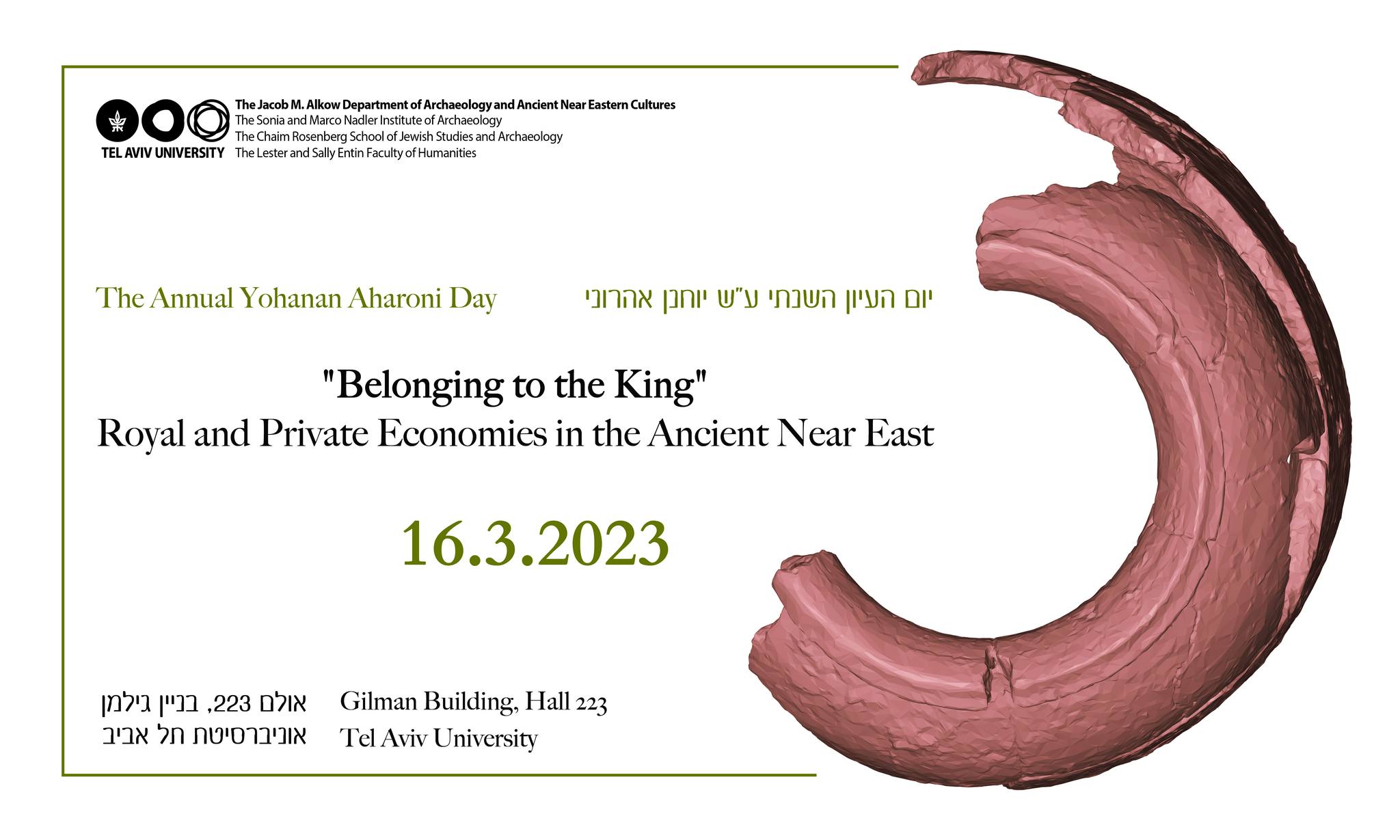 |
"Belonging to the King": Royal and Private Economics in the Ancient Near East
March 16th, 2023
Program >
Photo gallery >
Watch recording >
|
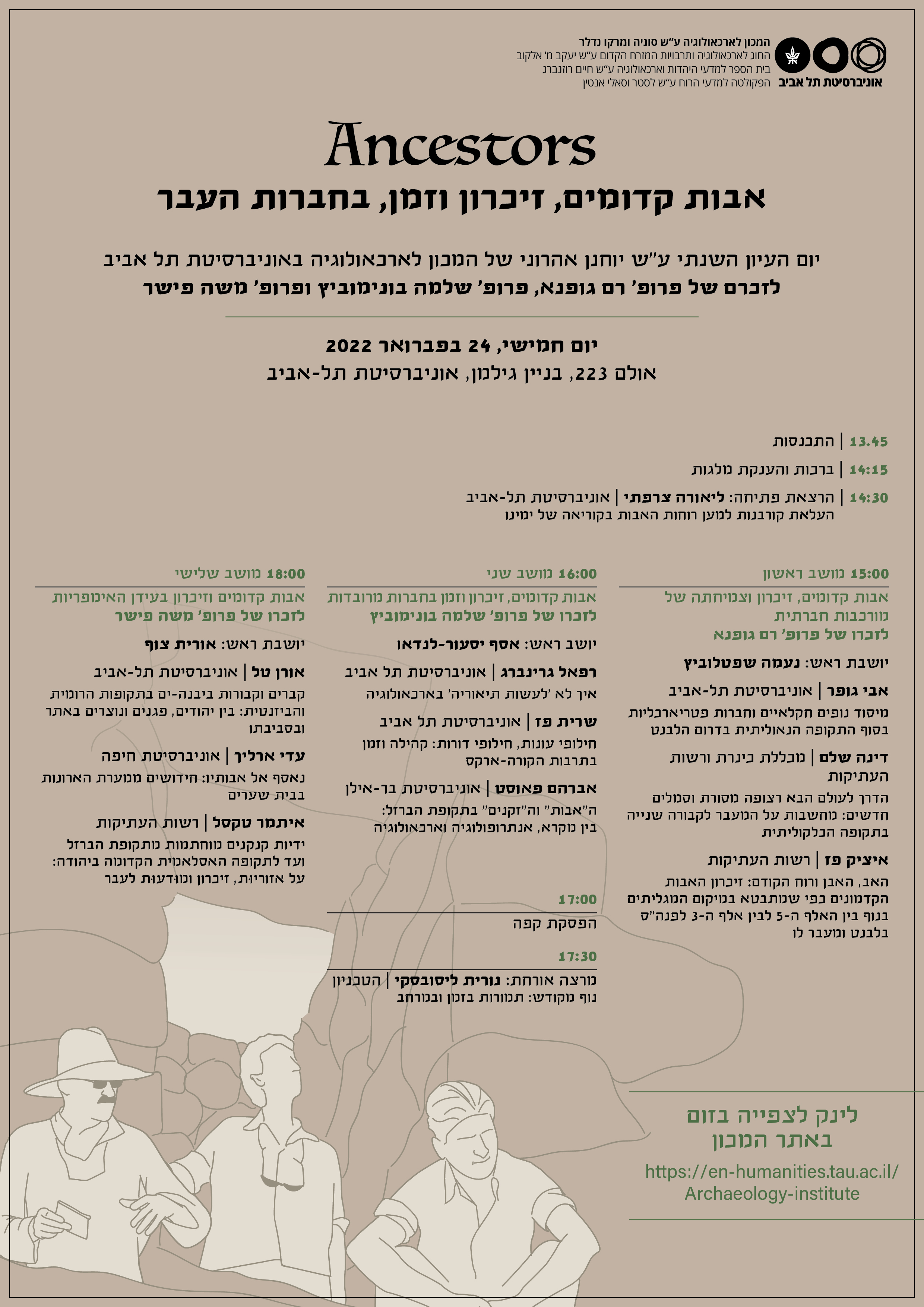 |
Ancient Ancestors, Memory and Time, in Past Societies
February 24th, 2022
The 2022 Annual Aharoni Day will pay tribute to the memory of three esteemed members of our Institute, who passed away in 2020 and 2021: Prof. Shlomo Bunimovitz, Prof. Moshe Fischer and Prof. Ram Gophna. The main theme of the day is ancestors and their role in past societies, and the presenters are mostly students of the three professors. The first session will be devoted to ancestors, their memory, and the growth of complex societies. Lectures will present case studies from the Neolithic, the Chalcolithic and the Early Bronze Age, all corresponding to the work of Prof. Ram Gophna. The second session will focus on examples from complex societies in the Levant and western Asia and will be devoted to the memory of Prof. Shlomo Bunimovitz. The third session will be concerned with the Southern Levant under Roman, Byzantine and Early Islamic rule and will include three lectures on research conducted in relation to Prof. Moshe Fischer’s scholarship. Two guest lecturers will present examples of how the memory of ancestors in other societies is symbolically expressed in the landscape and plays an essential role in identity formation processes and in the way we conceptualize our world. With a wide-ranging program both in time and in space, our Annual Aharoni Day is a key event in the calendar of the Israeli archeological community that continues to present the best scholarship possible.
Program >
Photo gallery >
Watch recording >
|
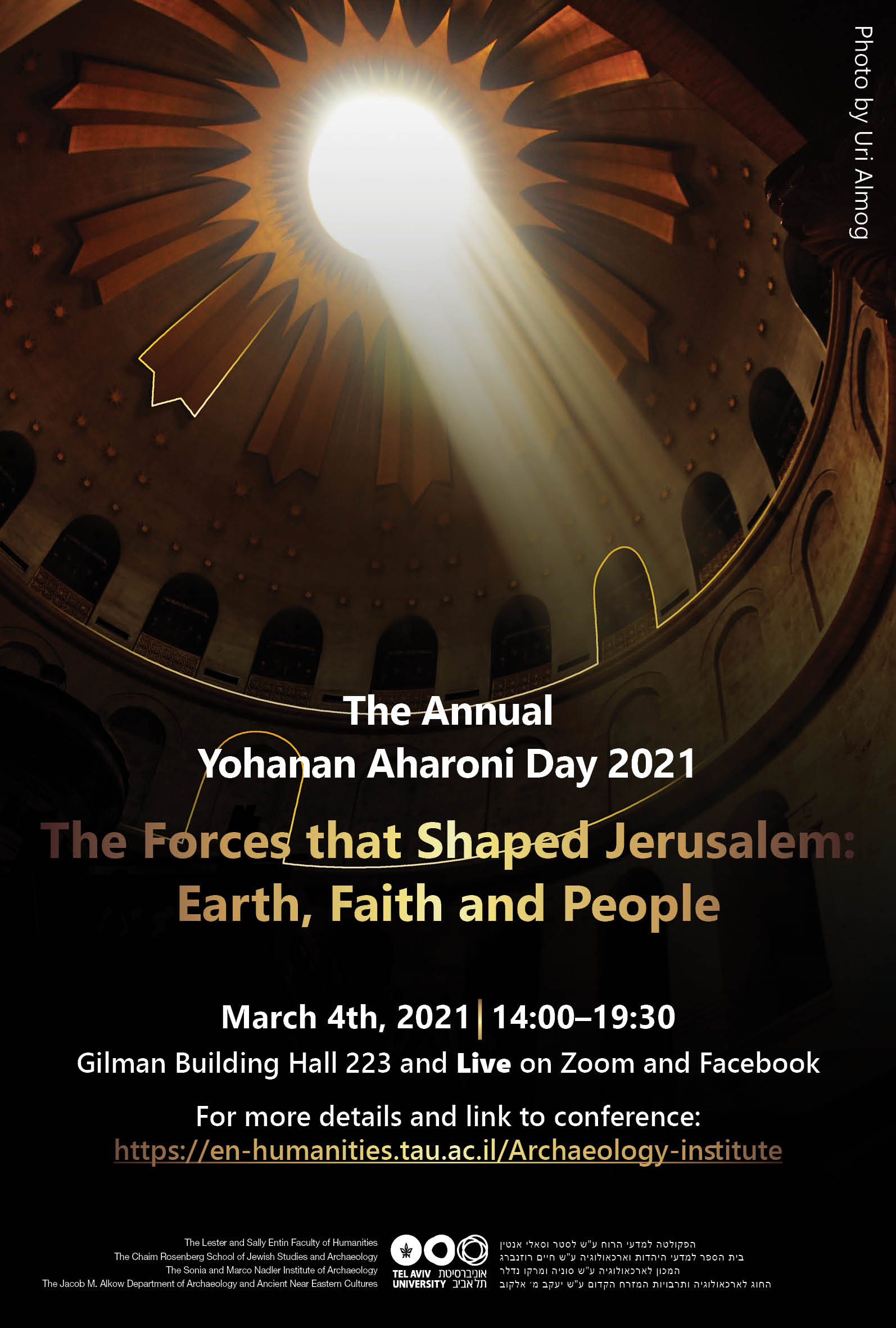 |
The Forces that Shaped Jerusalem: Earth, Faith and People
March 4th, 2021
The 2021 symposium focused on Jerusalem. With ample new and tantalizing finds uncovered in ongoing excavations in the city and its environs, we are still trying to fathom what it is that has turned Jerusalem into what it is today. Eighteen speakers from around the globe presented their perspectives on the forces that shaped Jerusalem: the environment, human faith and spirit, and charismatic leaders.
Program >
Photo gallery >
Watch recording >
|
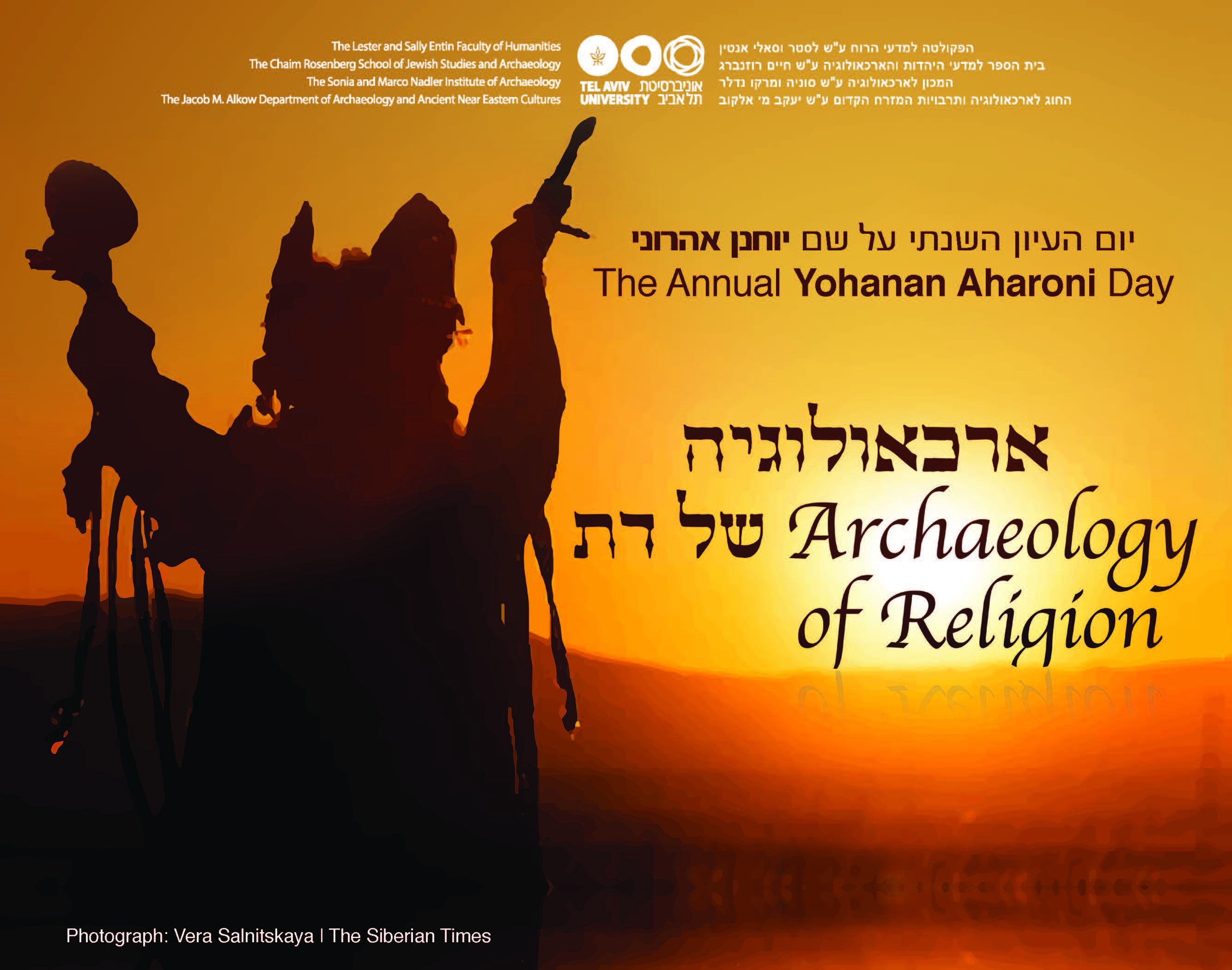 |
Archaeology of Religion
March 5th, 2020
This Symposium was dedicate to the “Archaeology of Religion,” which aims to present up-to-date research approaches from around the globe, as presented by experts who deal with the archaeology of the Maya, tribal Ethiopia, proto-historic China, paleolithic Europe, and Iron Age Southern Levant. These approaches challenge previous perspectives that once treated religion as a static structure—sometimes considered to be the most fundamental in the essence of collective identity— and prefer it be understood as a flexible meshwork of agents and structures that constantly change and modify to accommodate changes in society. Expressions of such flexibility include the appropriation of practices and beliefs, their entanglement in the local context, and the rearrangement of existing ideas and practices. Framing approaches to the archaeology of religion in this way offers scholars new approaches and answers to traditional concepts and questions.
Program >
Photo gallery >
|
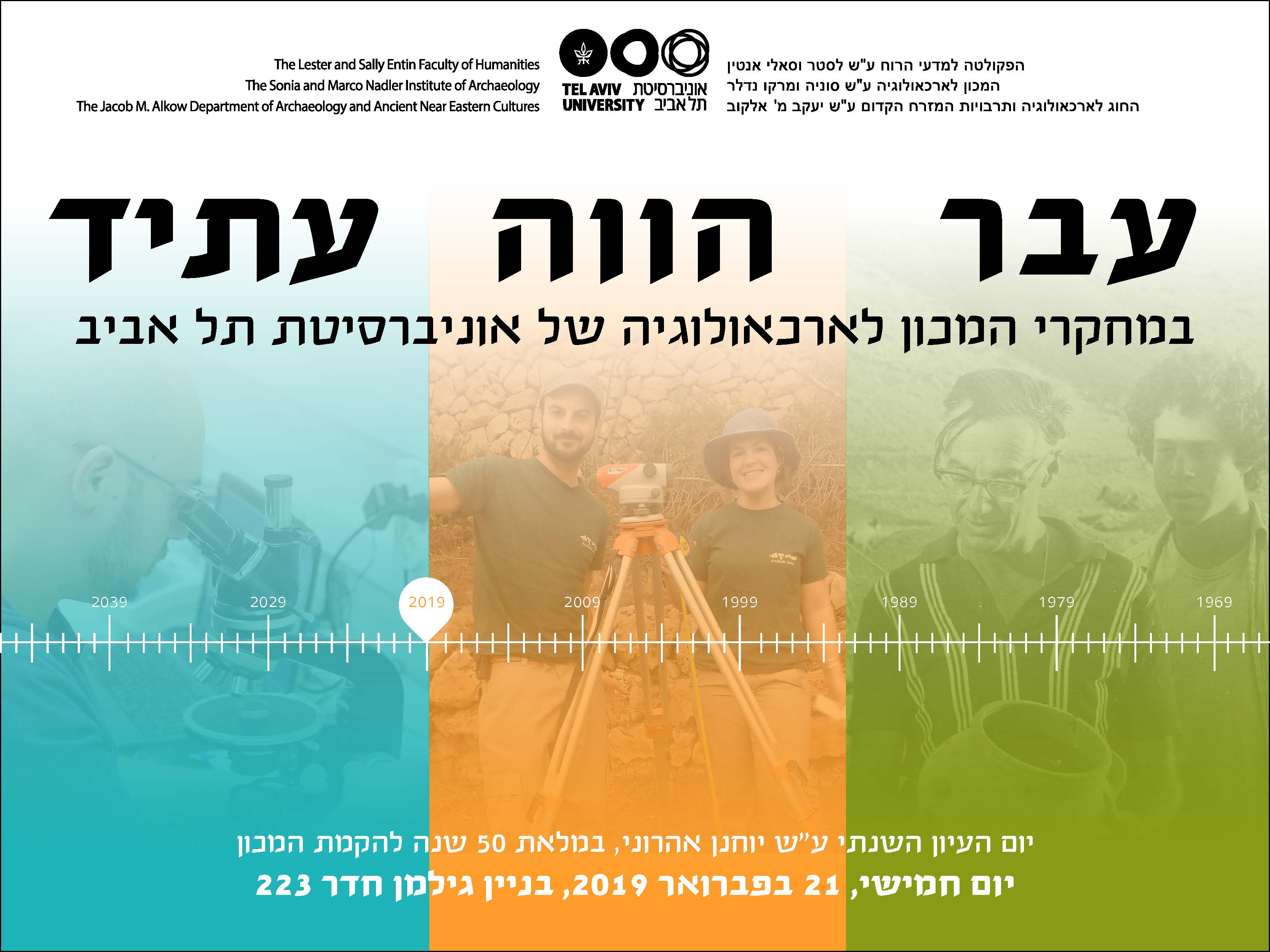 |
Past, present, and future: Researches of the Institute of Archaeology: The 50th Anniversary of the Department and the Institute of Archaeology
February 21st, 2019
Program >
Photo gallery >
|
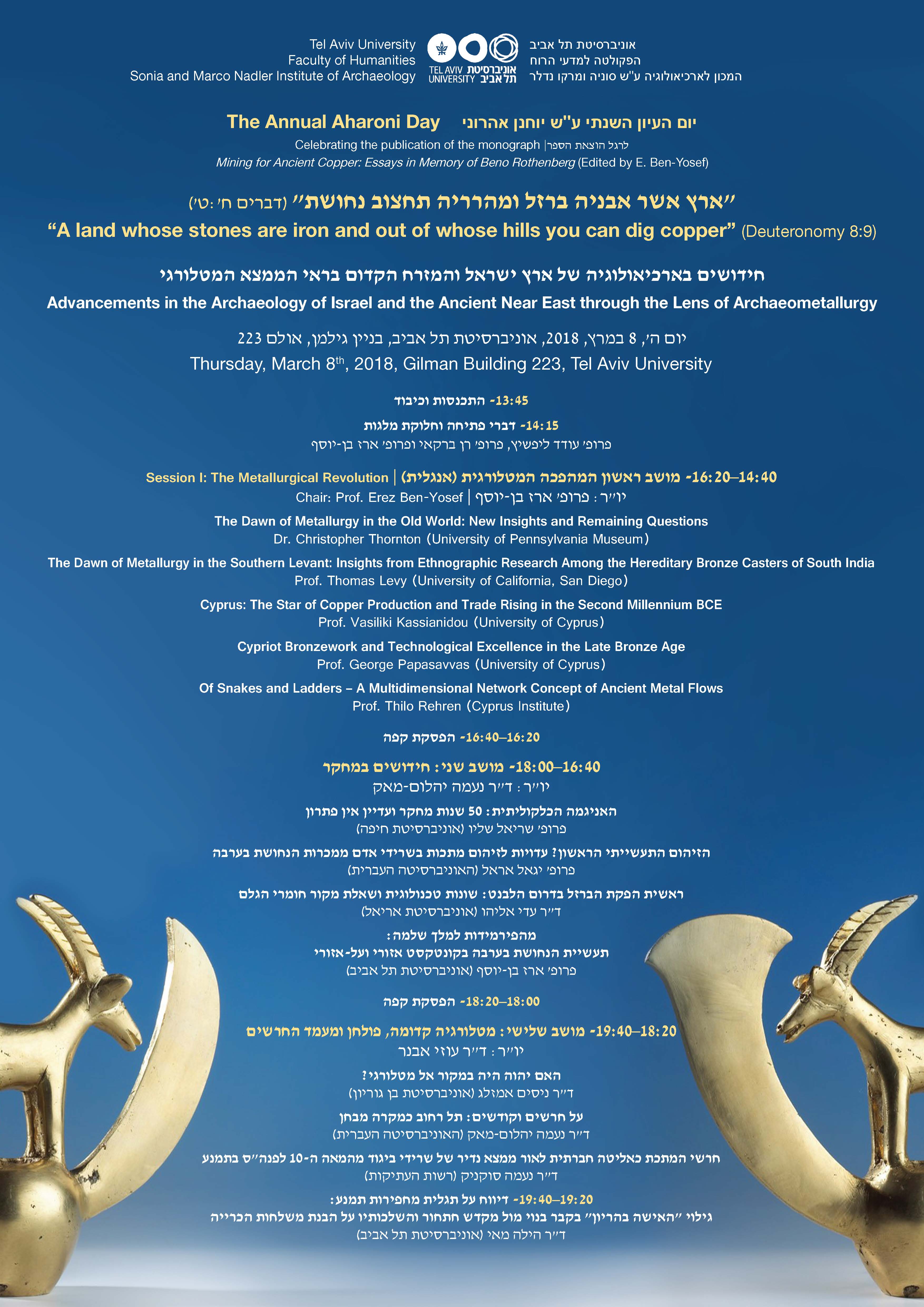 |
“A land whose stones are iron and out of whose hills you can dig copper” (Deuteronomy 8:9). Advancements in the Archaeology of Israel and the Ancient Near East through the Lens of Archaeometallurgy
March 8th, 2018
This Symposium celebrated the publication of the monograph ‘Mining for Ancient Copper: Essays in Memory of Beno Rothenberg’ (edited by Erez BenYosef). Divided into three sessions, the conference focused on (1) The Metallurgical Revolution (Chair: Erez Ben-Yosef), (2) New Studies (Chair: Naama Yahalom-Mack), and (3) Cultic and Social Aspects of Ancient Metallurgy (Chair: Uzi Avner). The conference structure allowed for scholars from across the field of archeometallurgy to present on a range of subjects, methodologies, results, and historical reconstructions. Conference attendees heard from 13 presenters from Israel and around the world. In sum the event was a productive exercise in collaboration and research, and conference organizers and the institute wish to thank all those presented and attended.
Program >
|
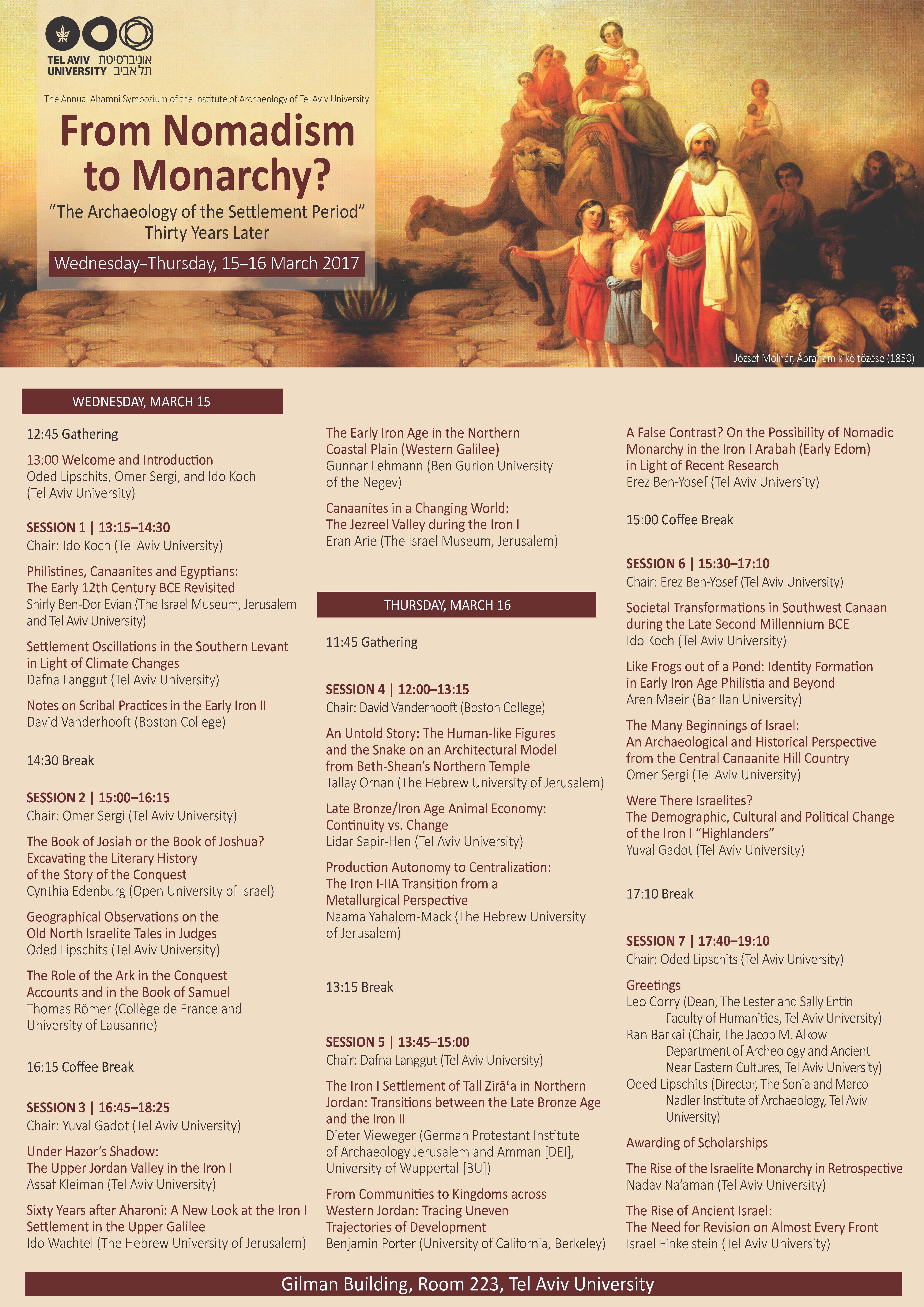 |
From Nomadism to Monarchy? “The Archaeology of the Settlement Period” Thirty Years Later
March 15th-16th, 2017
This Symposium celebrated 30 years since the release of two publications, which later became cornerstone texts for the subsequent study of the early Iron Age in the southern Levant. In 1986 Israel Finkelstein published The Archaeology of the Israelite Settlement (English 1988), the first systematic study of the Iron I in the Central Highlands of the southern Levant, which reassessed the origins of the 'Proto-Israelites' and their kingdoms. Born of this initial text was Nadav Na’aman and Israel Finkelstein’s book, From Nomadism to Monarchy - Archaeological and Historical Aspects of Early Israel. The text was the first volume to assemble the results of several intensive archaeological explorations (conducted during the 1970s and 1980s) from across the country, specifically in the Highlands. Thirty years later and the time has come once again to reassess the various reconstructions presented in these volumes, in light of updated archaeological data and theoretical frameworks. Across the two-day conference, 21 scholars from, Israel, France, Germany, and the United States presented their insights into the archaeology of specific regions, trends in cross-regional aspects such as epigraphy, cult, iconography, metallurgy, and animal exploitation, as well as the biblical traditions that reflect pre and early-monarchic Israel.
Program >
|